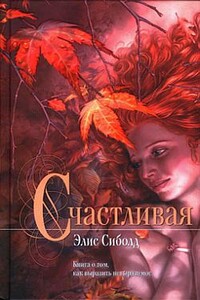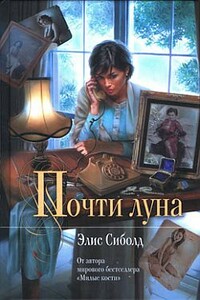“Making muffins,” Grandma Lynn said.
My father did a sanity check, staring at her. He was still in his robe and it was almost ninety degrees at ten in the morning, but she had pantyhose and makeup on. Then he noticed Hal in an undershirt out in the yard.
“My God, Lynn,” he said. “That boy is young enough…”
“But he’s de-lec-ta-ble!”
My father shook his head and sat down at the kitchen table. “When will the love muffins be done, Mata Hari?”
In December 1981, Len did not want to get the call he got from Delaware, where a murder in Wilmington had been connected to a girl’s body found in 1976 in Connecticut. A detective, working overtime, had painstakingly traced the keystone charm in the Connecticut case back to a list of lost property from my murder.
“It’s a dead file,” Len told the man on the other end.
“We’d like to see what you have.”
“George Harvey,” Len said out loud, and the detectives at neighboring desks turned toward him. “The crime was in December 1973. The murder victim was Susie Salmon, fourteen.”
“Any body for the Simon girl?”
“Salmon, like the fish. We found an elbow,” Len said.
“She have a family?”
“Yes.”
“Connecticut has teeth. Do you have her dentals?”
“Yes.”
“That may save the family some grief,” the man told Len.
Len trekked back to the evidence box he had hoped never to look at again. He would have to make a phone call to my family. But he would wait as long as possible, until he was certain the detective in Delaware had something.
For almost eight years after Samuel told Hal about the drawing Lindsey had stolen, Hal had quietly worked through his network of biker friends to track George Harvey down. But he, like Len, had vowed not to report anything until he was sure it might be a lead. And he had never been sure. When late one night a Hell’s Angel named Ralph Cichetti, who admitted freely he had spent some time in prison, said that he thought his mother had been killed by a man she rented a room to, Hal began asking his usual questions. Questions that held elements of elimination about height and weight and preoccupations. The man hadn’t gone by the name George Harvey, though that didn’t mean anything. But the murder itself seemed too different. Sophie Cichetti was forty-nine. She was killed in her home with a blunt object and her body had been found intact nearby. Hal had read enough crime books to know that killers had patterns, peculiar and important ways they did things. So as Hal adjusted the timing chain of Cichetti’s cranky Harley, they moved on to other topics, then fell silent. It was only when Cichetti mentioned something else that every hair on Hal’s neck stood up.
“The guy built dollhouses,” Ralph Cichetti said.
Hal placed a call to Len.
Years passed. The trees in our yard grew taller. I watched my family and my friends and neighbors, the teachers whom I’d had or imagined having, the high school I had dreamed about. As I sat in the gazebo I would pretend instead that I was sitting on the topmost branch of the maple under which my brother had swallowed a stick and still played hide-and-seek with Nate, or I would perch on the railing of a stairwell in New York and wait for Ruth to pass near. I would study with Ray. Drive the Pacific Coast Highway on a warm afternoon of salty air with my mother. But I would end each day with my father in his den.
I would lay these photographs down in my mind, those gathered from my constant watching, and I could trace how one thing – my death – connected these images to a single source. No one could have predicted how my loss would change small moments on Earth. But I held on to those moments, hoarded them. None of them were lost as long as I was there watching.
At Evensong one night, while Holly played her sax and Mrs. Bethel Utemeyer joined in, I saw him: Holiday, racing past a fluffy white Samoyed. He had lived to a ripe old age on Earth and slept at my father’s feet after my mother left, never wanting to let him out of his sight. He had stood with Buckley while he built his fort and had been the only one permitted on the porch while Lindsey and Samuel kissed. And in the last few years of his life, every Sunday morning, Grandma Lynn had made him a skillet-sized peanut butter pancake, which she would place flat on the floor, never tiring of watching him try to pick it up with his snout.







